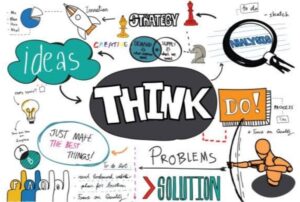Feasibility Studies: Preparation, Analysis, and Entrepreneurship Evaluation
Course Fee:
Course Objectives
• Understand the importance of feasibility studies in entrepreneurship
• Learn how to conduct thorough market research and analysis
• Develop skills in financial planning and projections
• Gain knowledge in risk assessment and mitigation strategies
• Explore the key elements of a comprehensive business plan
Course Content
Introduction to Feasibility Studies
• Definition and purpose of feasibility studies
• Role of feasibility studies in entrepreneurship
Market Research and Analysis
• Identifying target market and customer segments
• Analyzing industry trends and competition
• Assessing market demand and potential for growth
Product or Service Development
• Defining product or service features and benefits
• Identifying unique selling propositions (USPs)
• Developing prototypes and testing with potential customers
Operations and Management
• Determining production processes and capacity
• Identifying resource requirements (human, financial, and physical)
• Establishing organizational structure and management team
Financial Planning and Projections
• Estimating start-up costs and ongoing expenses
• Developing revenue projections and financial statements
• Analyzing financial ratios and break-even analysis
Risk Assessment and Mitigation
• Identifying potential risks and challenges
• Developing contingency plans and risk management strategies
• Assessing legal and regulatory requirements
Business Plan Development
• Structuring a comprehensive business plan
• Incorporating findings from feasibility study
• Presenting the business plan to stakeholders and investors
Case Studies and Best Practices
• Analyzing successful and failed entrepreneurial ventures
• Identifying key lessons and takeaways
• Discussing best practices in feasibility studies and entrepreneurship
FOR WHOM:
Project Managers, Project Planners, Managers responsible for launching new products and services, Senior operations managers, People launching new business ventures
Methodology
The training methodology integrates lectures, interactive discussions, collaborative group exercises, and illustrative examples. Participants will acquire a blend of theoretical insights and hands-on practical experience, emphasizing the application of learned techniques. This approach ensures that attendees return to their professional environments equipped with both the competence and self-assurance to effectively implement the acquired skills in their responsibilities.
DATE:
1ST BATCH: 27th Feb – 1st Mar, 2024
2ND BATCH: 9th – 12th July, 2024
3RD BATCH: 22nd – 25th Oct, 2024
Course Category
- Human Resource and Admin
- Finance and Accounting
- Internal Audit and Fraud Control
- Stores, Procurement and Supply Chain
- Information Technology
- Aviation and Maritime
- Banking, Investment and Insurance
- Business Communication
- Construction Management & Civil Engineering
- Engineering, Instrumentation and Maintenance
- Entrepreneurship and Business
- Hotel & Hospitality Management
- Law and Contract Management
- Management and Leadership
- Project Management
- Public Relations
- Public Sector
- Sales, Marketing & Customer Service
- Secretaries & Personal Assistants
- Transport & Logistics
- Security and Safety
More Courses
VENUE
25, Queen street, Alagomeji Bus Stop, Yaba, Lagos










